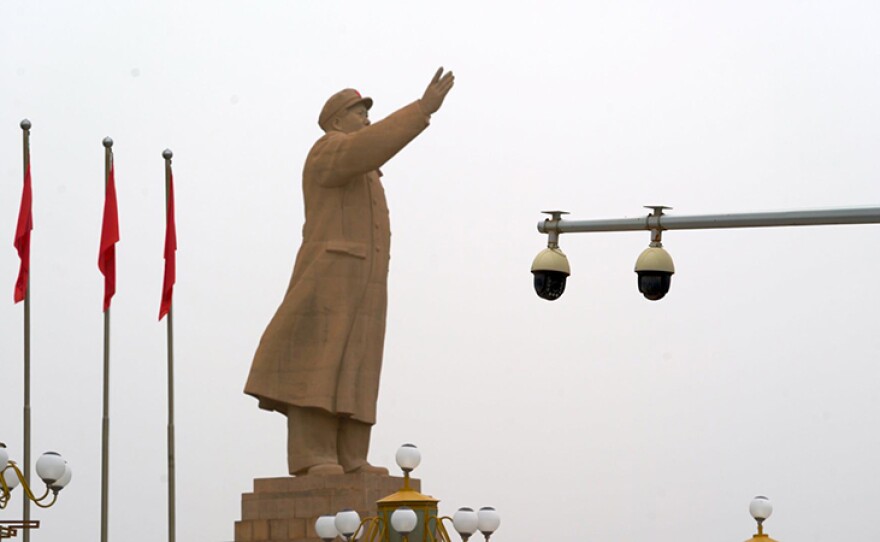—FRONTLINE Goes Undercover to Investigate China’s Detention and Surveillance of Muslims—
“If I disappear, don’t tell anyone or say anything. There are people listening everywhere. Everyone has someone following them.” -a voicemail from Gulgine, a Uyghur Muslim, shortly before it’s believed she was detained by China’s government
The Chinese government’s detention of an estimated two million Muslims without trial over the past three years has been described as the largest mass incarceration of an ethnic group since the Holocaust.
On April 7, in "China Undercover," FRONTLINE goes inside China’s tightly controlled Xinjiang region to investigate the Communist regime’s mass imprisonment of Uyghur and other Muslims there — as well as its testing and use of sophisticated surveillance and artificial intelligence technology against the general Muslim population.
“Uyghurs are not considered human by the Chinese government,” an engineer who worked on the surveillance technology being developed in Xinjiang tells FRONTLINE. “They are like mice being experimented on for research purposes.”
Undercover footage filmed by “Li,” a businessman who often works with journalists, offers a firsthand look at how extensive China’s surveillance of Uyghur Muslims has become — revealing houses marked with digital barcodes, cameras on almost every street, and tech companies that are working with the government on facial recognition technology that identifies behavior the government considers threatening.
“They don’t have human rights,” a local security official tells “Li” of Uyghur Muslims. “It’s not about violating, they just don’t have human rights.”
In addition to undercover footage, the documentary draws on accounts from family members who are searching for their loved ones — and the stories of people who were held in camps in Xinjiang themselves.
“You were like a zombie in the camp, like someone who had lost their mind,” says Rahima, who was held for a year. “You just think about being released and dream of that moment.”
“There were bars and mesh wire all around us,” says Gulzira, who was detained for 17 months. “If you exceeded two minutes in the toilet, they hit our heads with an electric prod.”
China says it has now released everyone being detained in what it called its “vocational education and training centers,” and that “the security situation in Xinjiang has been greatly improved,” with “more effective protection of the freedom of religious belief and human rights of Uyghur Muslims.”
But Chinese technology companies have been exporting their surveillance technology to other countries across the world.
“Xinjiang has global implications because what we’re seeing is the early stages of a new form of governance controlled through advanced predictive algorithmic surveillance,” cyber security researcher Greg Walton tells FRONTLINE. “Those systems will be exported and that would be a massive setback to the cause of human freedom to liberal democracy around the world.”
And family members of people held in China’s detention camps are still waiting to be reunited with their loved ones.
“I still want to feel hopeful because I want to hear my parents’ and my sister’s voices and I long to see them,” says Gulzire, a Uyghur Muslim living in Germany whose sister, Gulgine, disappeared in Xinjiang after she decided to go back when their parents stopped replying to messages.
“Of course, we miss her,” Sadyrzhan, an Uyghur Muslim in Kazakhstan whose wife disappeared after visiting her parents in Xinjiang, tells FRONTLINE. “Our hearts are burning.”
Watch On Your Schedule:
Tune into the broadcast or or watch at pbs.org/frontline, on YouTube, or with the PBS Video App.
Join The Conversation:
FRONTLINE is on Facebook, Instagram, tumblr, and you can follow @frontlinepbs on Twitter. #frontlinePBS
Credits: A Hardcash production for WGBH/FRONTLINE and ITV in association with Entertainment One. It was produced by Robin Barnwell and Gesbeen Mohammad and directed by Robin Barnwell. The senior producer is Dan Edge. The executive producer of FRONTLINE is Raney Aronson-Rath.





